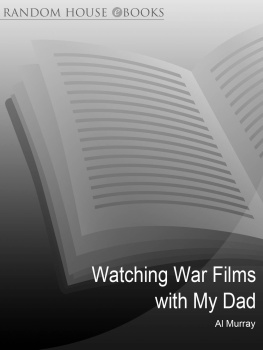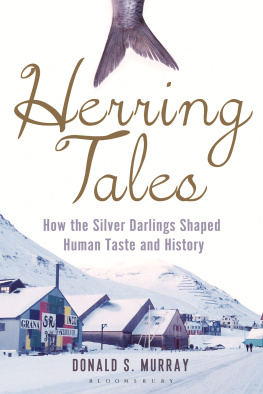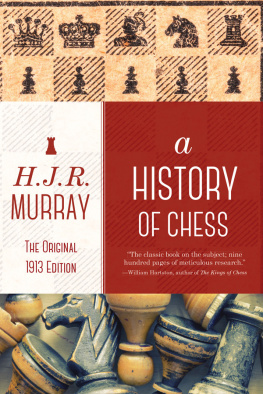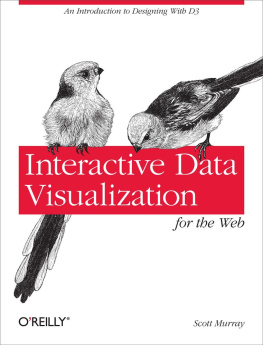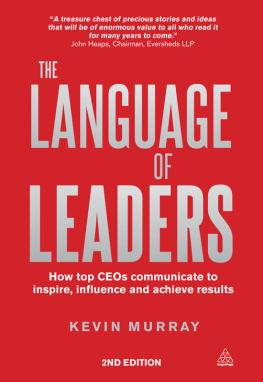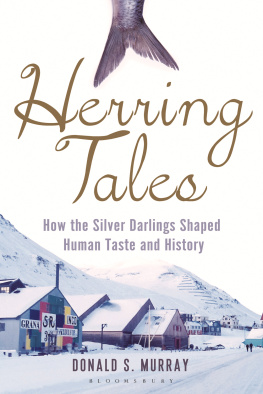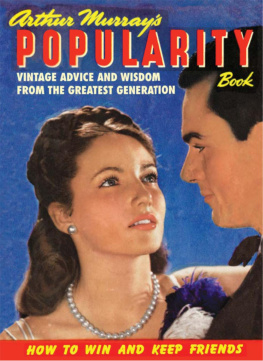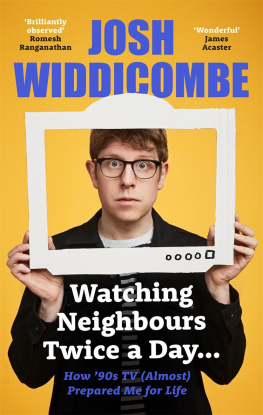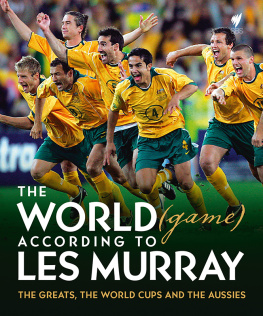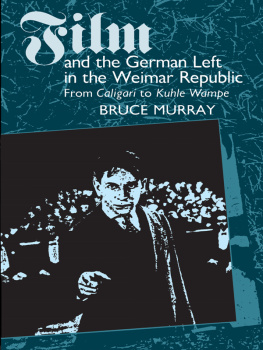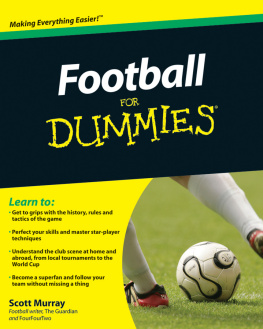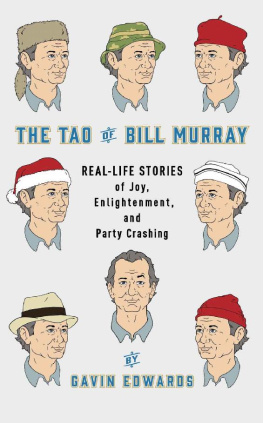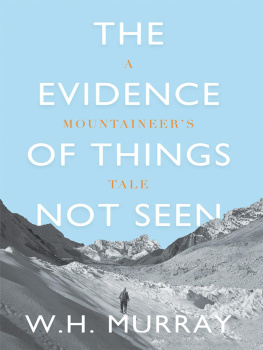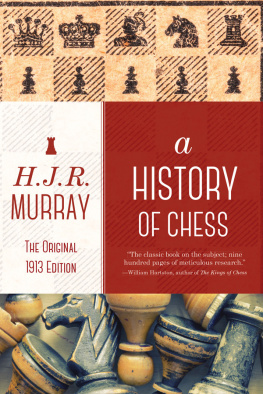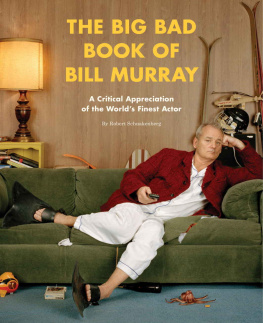Contents
Watching War Films with My Dad
Al Murray

ALSO BY AL MURRAY
The Pub Landlords Book of British Common Sense
The Pub Landlord Says Think Yourself British
The Pub Landlords Great British Pub Quiz Book
Acknowledgements
Thank you...
To Paul Powell for reading the chunks as they arrived.
For the encouragement from Richard, Becky, Dan, Susie herself, and Ben Dunn who saw fit to make me redraft the rambling/steaming pile I first presented him with. Also to Julia Twaites for helping put this together.
To Nick Austin for his editorial assistance all mistakes in here are my own, lapses of memory or research or wonky opinions lie with your author. If theyre really bad Ill say I was joking.
To Team Total.
To Eleanor for enduring another draft.
To Scarlett and Willow for putting up with history lectures at mealtimes.
1. Watching Private Ryan
WATCHING WAR FILMS WITH MY DAD
IF EVER YOU want to ruin something properly, and by something I mean a war film, watch it with my father. Though actually, if ever you want to ruin something (I mean a war film again) properly and hes not available you could always watch it with me. Maybe ruin is a bit strong, but certainly derail, bouleverse, scupper, traduce would cover it. Neither of us can help ourselves. It just happens. Not doing it requires monumental self-control, actual lip-biting.
In our defence I think that its obvious why we cant help ourselves and that really its not our fault at all. Because war movies contain representations of real events, real equipment and of course real people, they are ripe, low-hanging fruit for the very worst kind of nit-picky pedantry. And the worst kind is the kind that fills you with a morbid thrill of the delight at being right. Put on a war film and I start to seethe reflexively at the damned thing. Because the film cant answer back its like being able to shout I told you so at someone powerless to respond. I know were not alone. War is hell, yes, but war films are worse. Just try watching The Battle of Britain with someone who knows their Spitfire types, it is torture, and as for the German planes in that...
... well, theyre not German planes, theyre Spanish planes made under licence after the war, which in an odd twist are powered by made-under-licence British Merlin engines (the fabled engines that powered Spitfires, Hurricanes, Mosquitos, Lancasters). The planes standing in as the German Heinkel He 111s are CASA 2.111s. So the German aircraft have the wrong-shaped noses (especially the Messerschmitts) and make the wrong noise. But I digress. All too easily, you may find. The reason they were powered by British Merlins was that the German parts were hard to come by after the war, and what with the Germans having lost and Germanys military exports having been somewhat curtailed, the best engines on hand were British. Even as Britain scrapped its air force, dumping huge numbers of planes in the sea, this was going on. And of course you dont mind selling the stuff thats obsolete, if it comes to it your own stuff is better: at this point the RAF had gone over to jets almost completely. So you have Fascist-owned Nazi airframes powered by Allied engines.
Anyway, I grew up on this stuff. War films were a mainstay of British male popular culture when I was growing up in the Seventies. To some the Seventies is all about flares and disco, or Mohican haircuts and punk or, worst of all, ABBA but to me the Seventies is war films on the telly. I was blissfully ignorant of the idea that these movies were a way of British culture processing what had happened to it during World War Two: the nine-year-old me had little sensitivity (or even an atom of it) to what my grandmother who had lost her husband and brother in the war might make of my enthusiasm for war films. Or my mum, whod never known her father or her uncle. They were made for men, about men, with men in them. Thats certainly how I saw them when I was a boy though I know I didnt think about it too hard, either.
How else was I supposed to see them? Sometimes theyd have girls in them, but as a lad youd wonder why they were in them at all. Pilots would leave wives at home, wringing their hands, men on secret missions might take a break from evading and/or slaying Germans to snog the female radio operator or Resistance contact (to then discover often enough that she was a spy and then have to slay her too). I remember pretty much resenting the presence of the women in their pointy-boobed jumpers and the accompanying feminine treachery in The Guns of Navarone, its subplot as brimful of original sin as the Garden of Eden. This was boys stuff! No girls allowed! These Sten guns are cool!
As well as being unreservedly masculine, many of the Fifties war films plainly depict a post-war self-image of reserve and stiff upper lip, essential to the temperament of the time and how the country was telling itself the story of how it had got through the war: but my nine-year-old self didnt register any of this. At all. A friend of mine had a war-film-themes record that we would listen to; often as not I knew the music long before I ever saw the film. Playing with Action Man with the theme to 633 Squadron on the record player in the background was a fairly standard afternoon in the holidays. And ace. But on top of this boyish fun, from an early age I also took on the mantle of war-film pedant, a skill I learned eagerly at my fathers knee.
Theres one film that is central to all of this, pivotal in my development as a war-film pedant and then as an enthusiastic consumer of history (complete with a brief detour into doing an actual degree in history, an academic episode best described as dismal and distracted), and it is the classic film A Bridge Too Far. Ill be coming back to the film and the events it how shall we say? represents, again and again in this book. It was where I became aware, very early on, of the collision of storytelling, history, myth, war and its undeniable glamour: even in a film that is squarely pitched as a war: aint it a waste? film. And how important tea is.
I have a clear memory of being taken to see A Bridge Too Far at the cinema when I was nine. It was a really big deal we didnt go to the cinema much, and this was a major dad-and-lad event. I think we went to Bletchley but I could be wrong. It might have been the bright lights of Aylesbury, possibly Luton. These were the days of the B-feature, huge cinemas that you could stay in of an afternoon and watch the whole programme all the way round again. I remember seeing The Eagle Has Landed like this: wed missed the start so stayed and caught the painfully slow first half of exposition and plotting. That was definitely in Luton. And the B-feature was a short about trains.
Now a Sunday-afternoon teatime staple, A Bridge Too Far tells the story of Operation Market Garden. Every male human of my ilk has seen this star-studded war epic, a tale of British pluck and tea, American guts and glory, immaculate German uniforms and ruthlessness, lofty failure, etc., etc. And when I say star-studded I mean star-studded: Connery, Redford, Hackman, Bogarde, Caine, Hopkins, Caan, Olivier and loads of other people you need the first names for. And Cliff from Cheers in a cameo that irresistibly draws the eye away from Robert Redford, proving that a spud-faced bloke is better than any handsome git any day. Directed epically in an epic style by Dickie Attenborough, with an epic script by William Goldman, it tells the epic tale of the failed Operation Market Garden at a personal as well as, um, epic level. It has tons of guts, tons of glory and stars vying for screen time. It ends poignantly, asking us to ask: why? And it is, like all historical films, shot through with inaccuracies, riddled like a machine-gunned evil Nazis corpse. Some of them proper howlers.
Next page
